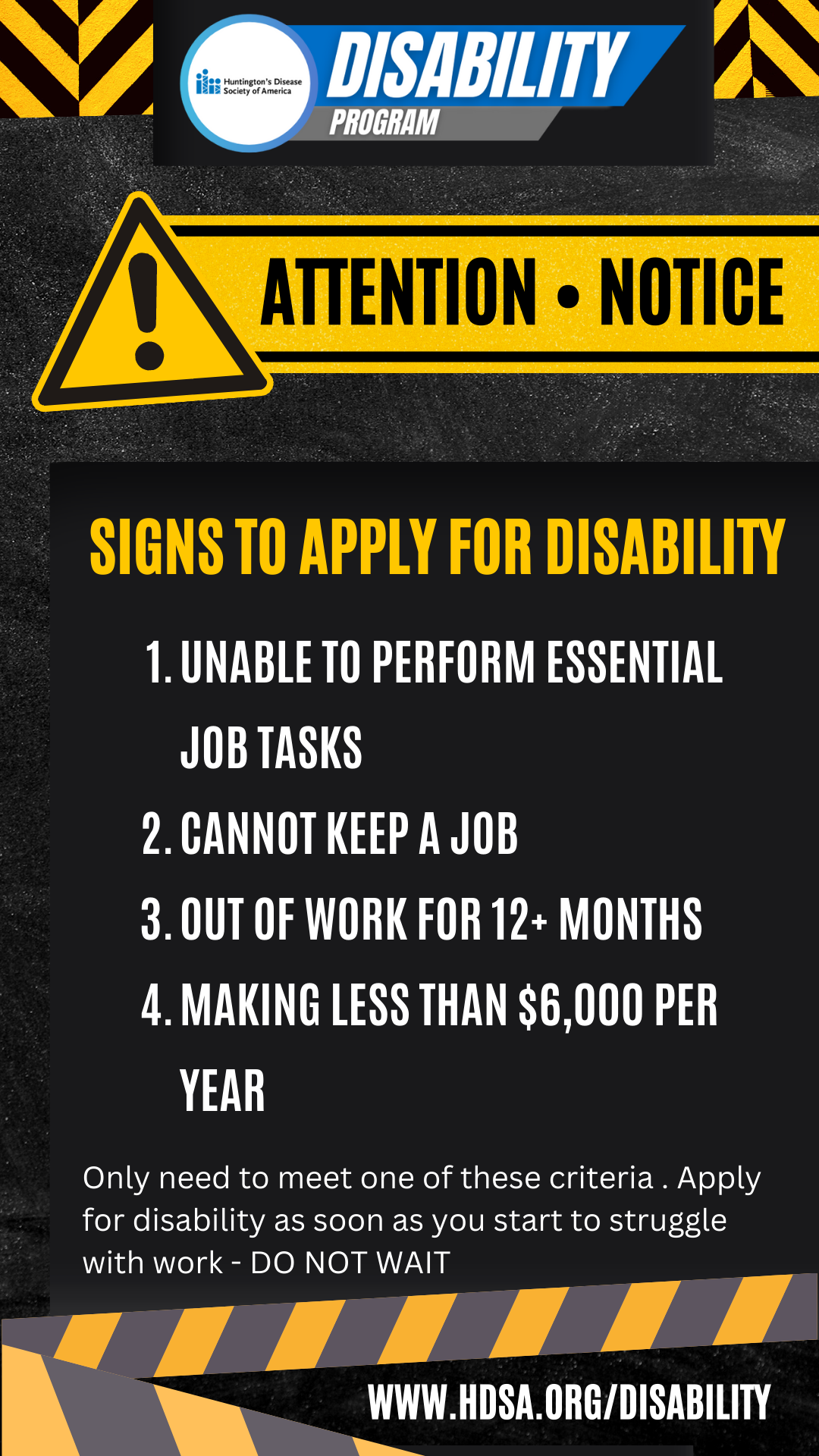Knowing When to Stop Working
Knowing when to stop working is a very difficult part of the disability process because it is a different answer for every person – there is no perfect equation for when to stop working. The timing for when to stop working depends on your HD symptoms, your job/job tasks, and your employer – you know your situation best. While there is not one clear “sign” or “aha moment” to stop working, there are warning signs to follow:
1. Have trouble performing or unable to perform essential job tasks – Once you are unable to perform your essential job tasks, with or without accommodation, your right to employment is no longer protected.
2. Have trouble keeping a job – if you are unable to learn your new job and cannot keep a job more than 6 months, then it is time to apply for disability. Social Security considers employment of less than 6 months an unsuccessful work attempt.
3. Have been out of work for 12+ months – if you have been out of work for more than 12 months then your lack of work is going to start impacting your monthly disability benefit amount. Social Security disability benefits are based on your work history and the average of your work salaries. When you stop working and stop earning money, that hurts your Social Security disability monthly payment amount.
4. Make less than $6,000 a year – Everyone who pays into Social Security is earning quarters of work credit and you earn up to 4 per year. In 2022, you need to earn $6,040 to earn all of your credits for the year. When you reduce your work or stop working altogether, you stop earning credits, which jeopardizes your eligibility for Social Security Disability and Retirement benefits.
It is going to be very important to work with your neurologist and care team because they can help you get documentation for work accommodations, they can help you decide if it is the right time to stop working, and they will be your biggest advocates when it is time to apply for disability. Your neurologist and care team will be available to have honest conversations with you about your symptoms and limitations, they can also schedule testing to help determine the extent of your symptoms and limitations. Knowing when to stop working is also knowing when to ask for help.


